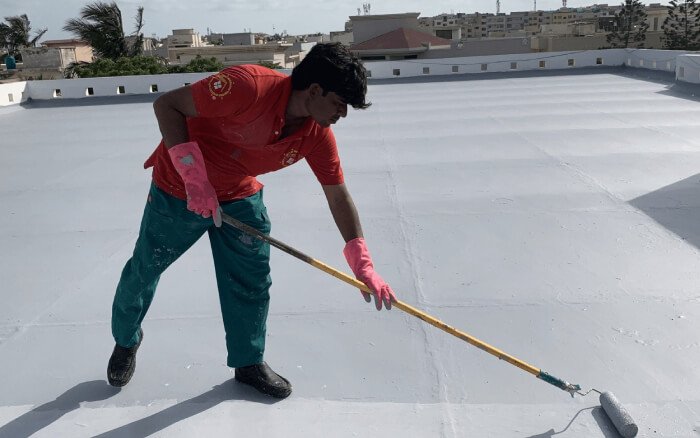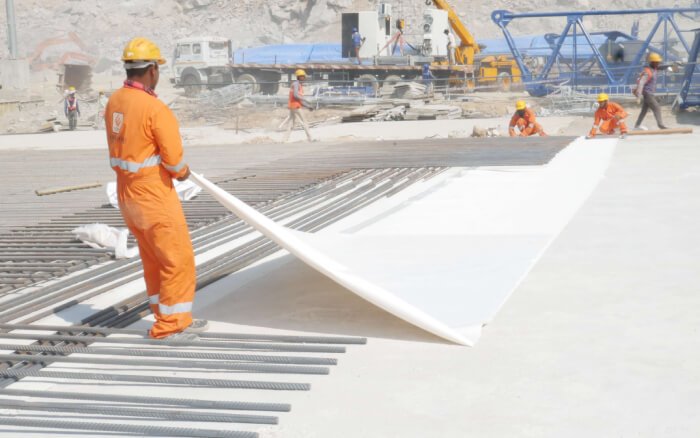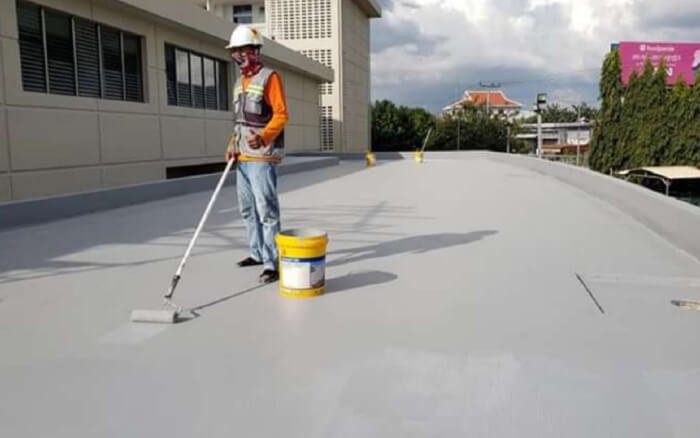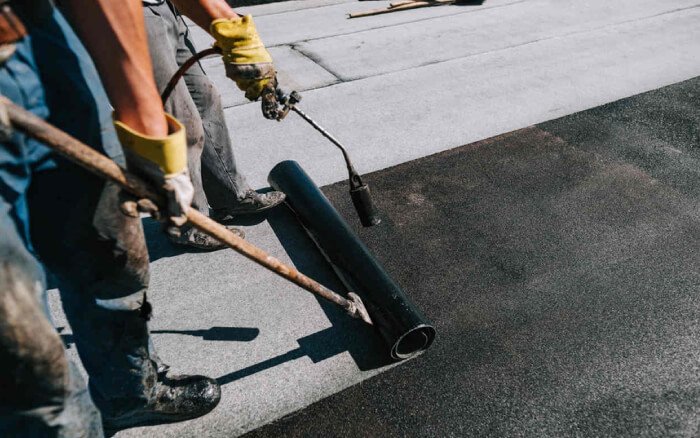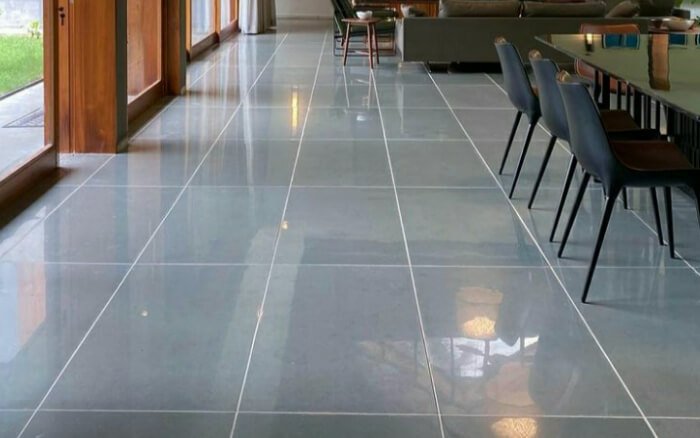What is HDPE Membrane?
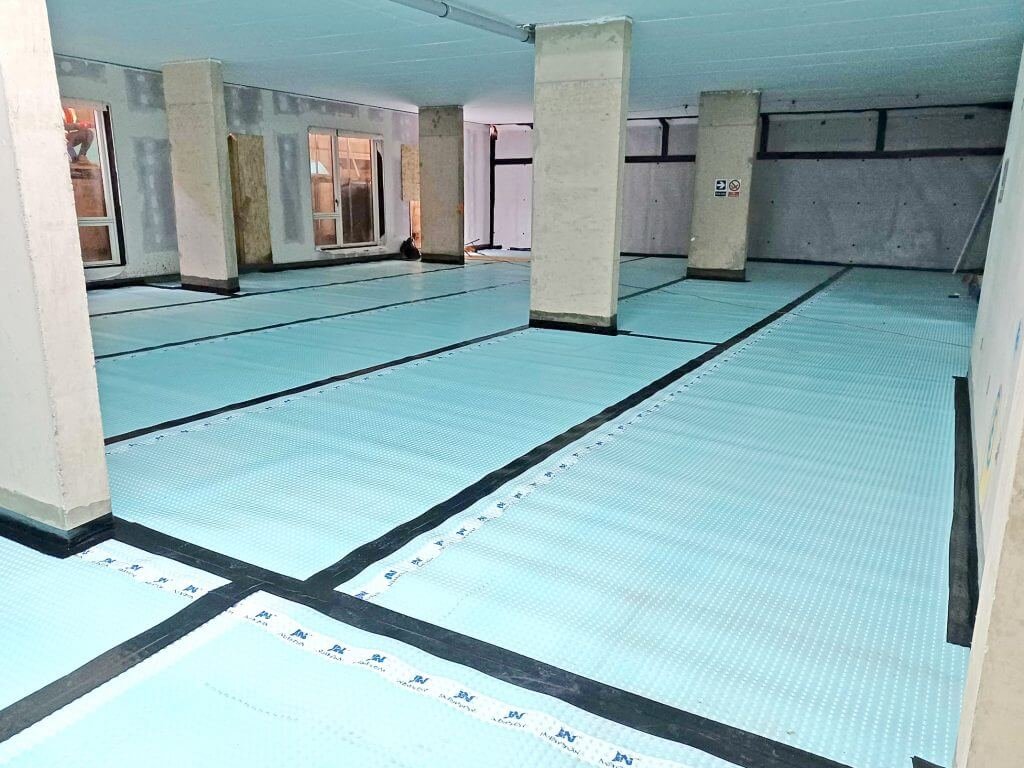 HDPE (High-Density Polyethylene) Membrane is a robust, durable, and flexible membrane primarily used for waterproofing applications. Made from high-quality polyethylene, HDPE membranes offer superior protection against water infiltration and moisture, making them ideal for use in various construction projects, including foundations, basements, tunnels, and reservoirs. HDPE membranes provide an impermeable barrier that is resistant to chemicals, UV radiation, and extreme weather conditions.
HDPE (High-Density Polyethylene) Membrane is a robust, durable, and flexible membrane primarily used for waterproofing applications. Made from high-quality polyethylene, HDPE membranes offer superior protection against water infiltration and moisture, making them ideal for use in various construction projects, including foundations, basements, tunnels, and reservoirs. HDPE membranes provide an impermeable barrier that is resistant to chemicals, UV radiation, and extreme weather conditions.
How Does HDPE Membrane Work?
HDPE membranes are applied to surfaces to create a waterproof layer that prevents water infiltration. The membrane's thickness, combined with its excellent chemical resistance and low permeability, ensures long-lasting protection. HDPE membranes are typically installed using a heat fusion method or adhesive bonding to create a seamless layer.
- Surface Preparation: The surface must be clean, dry, and free from sharp objects or debris to ensure proper adhesion and a smooth application.
- Installation: HDPE membranes are installed by laying them on the prepared surface. The edges of the membrane are then welded or sealed together to ensure a tight, continuous barrier.
- Curing: The membrane is allowed to set and bond to the substrate, forming a waterproof seal that provides long-term protection against moisture and water ingress.
Advantages of HDPE Membrane
HDPE membranes offer several advantages for both residential and commercial applications:
- Durability: HDPE membranes are highly durable, resistant to punctures, tears, and abrasions, making them ideal for challenging construction environments.
- Waterproofing: The impermeability of HDPE membranes ensures reliable protection against water infiltration, keeping structures dry and safe from water damage.
- Chemical Resistance: HDPE membranes have excellent resistance to a wide range of chemicals, including acids, alkalis, oils, and solvents, making them suitable for industrial and chemical containment applications.
- UV and Weather Resistance: The material’s resistance to UV radiation and harsh weather conditions ensures long-term performance in outdoor environments.
- Environmental Friendly: HDPE membranes are made from recyclable materials, offering an eco-friendly option for construction and waterproofing needs.
Applications of HDPE Membrane
HDPE membranes are versatile and can be used in a variety of applications, including:
- Foundation Waterproofing: HDPE membranes are widely used to waterproof building foundations, preventing water damage and ensuring structural integrity.
- Basement Waterproofing: HDPE membranes provide effective waterproofing for basements and below-ground structures, preventing moisture and water ingress.
- Landfill Liners: These membranes are used in landfills to prevent leachate contamination by creating an impermeable barrier between waste and the surrounding soil.
- Reservoir Lining: HDPE membranes are commonly used to line reservoirs, ponds, and lagoons to prevent water loss and contamination.
- Tunnel and Underground Waterproofing: These membranes are used for waterproofing tunnels, subways, and other underground structures to prevent water leakage and damage.
- Stormwater Management: HDPE membranes are often used in stormwater management systems, providing reliable waterproofing for retention ponds, drainage systems, and other infrastructure projects.

Choosing the Right HDPE Membrane
Selecting the right HDPE membrane for your project is crucial to ensuring its long-term performance. Here are some factors to consider:
- Thickness: The thickness of the HDPE membrane should be chosen based on the expected load and the type of project. Thicker membranes offer greater protection and durability.
- Chemical Resistance: Depending on the specific environment, ensure that the membrane selected is resistant to the chemicals it will be exposed to, such as acids, alkalis, or oils.
- UV Resistance: If the membrane will be exposed to sunlight, choose a product with enhanced UV resistance to prevent degradation and ensure long-lasting protection.
- Temperature Tolerance: Ensure that the HDPE membrane is suitable for the temperature range it will be exposed to during installation and throughout its lifespan.
Why Choose HDPE Membrane?
HDPE Membranes offer a reliable, long-lasting, and environmentally friendly solution for waterproofing a wide range of construction projects. With superior chemical, UV, and weather resistance, they are ideal for both commercial and industrial applications. Below are some key reasons to choose HDPE membrane for your next waterproofing project:
- Long-Term Durability: HDPE membranes are designed to withstand harsh environmental conditions and provide decades of reliable waterproofing protection.
- Superior Waterproofing: The impermeable nature of HDPE ensures optimal protection against water infiltration, safeguarding your property from moisture damage.
- Cost-Effective: HDPE membranes offer excellent performance at a competitive price, providing an affordable solution for large-scale waterproofing projects.
- Ease of Installation: HDPE membranes are easy to install with minimal labor and time, making them an efficient choice for construction projects with tight schedules.
- Eco-Friendly: Made from recyclable materials, HDPE membranes provide an environmentally sustainable option for waterproofing applications.
Conclusion
HDPE Membrane is a top-tier solution for waterproofing, offering exceptional durability, chemical resistance, and environmental protection. Whether you are waterproofing foundations, basements, or reservoirs, HDPE membranes provide a reliable, cost-effective, and eco-friendly solution that will stand the test of time. Choose HDPE membrane for your next project to ensure lasting protection against water infiltration and moisture damage.


